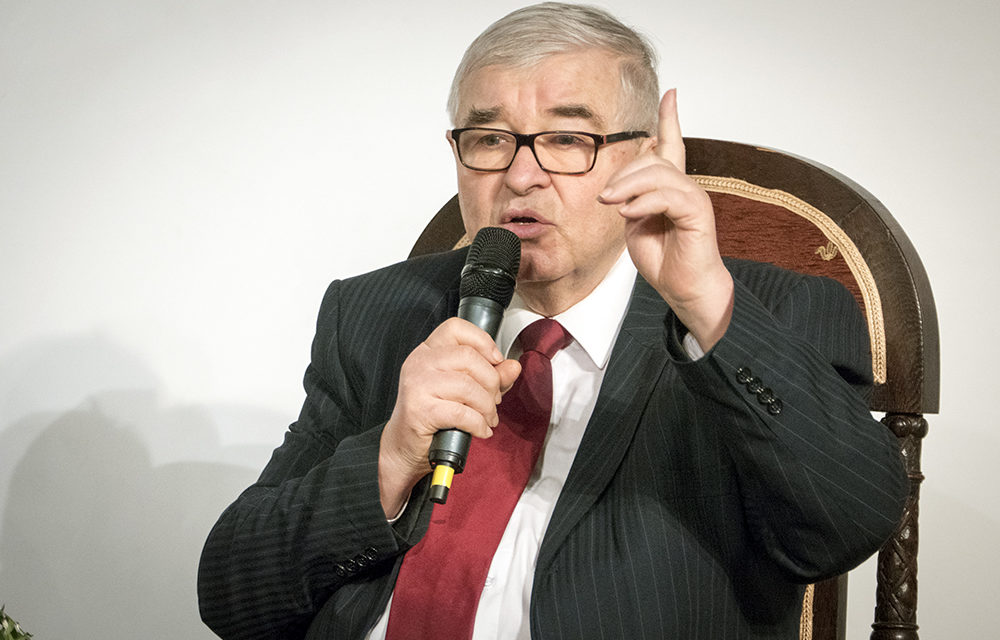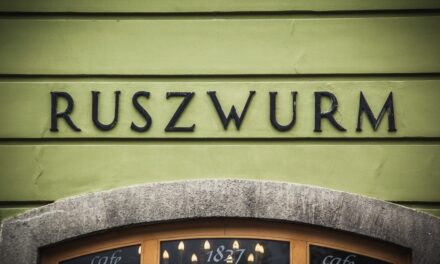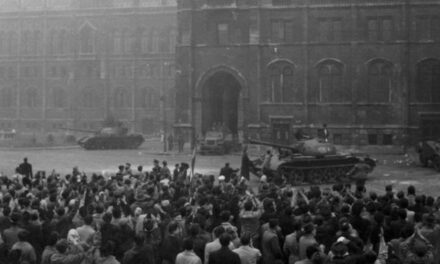In the West (England, France), the remnants of sacredness were eliminated a long time ago, rulers were murdered, while Russia and its allies not only formally preserved sacred traditions.
The world, including us, is living in an age of rapid changes, here in intermediate Europe. After 1945 it seemed that our fate was sealed forever. Instead of the West we always wanted, we irrevocably fell under the influence of the great, eastern, "red", imperial Russia (called the Soviet Union), and the West condemned us to them. The West would have had other choices.
Even Churchill would have thought it would be good if the Western squadrons of the military coalition landed in the Balkans in 1943 and blocked the Soviets' way to the West, and they would also liberate intermediate Europe from Nazi rule. At that time, the private money power center based in America saw it better if we and a few other peoples in the region were softened up for decades under red rule to enter the "modern" West. In this way, the showdown with centuries-old traditions loyal to the nation will be faster.
It is worthwhile to follow the history of the West and the Russian Empire from the point of view of the Russian Empire this time, in case it provides more useful lessons for the future. On the one hand, by the West we mean the private money empire, formerly London (pound), now New York (dollar) as its center, but the nationally based imperial structures organized against them were also part of the West (Napoleon, Hitler).
Empire building in Europe proceeded in parallel in the West and in the East. The early empire-building nations of the West, all serious seafaring peoples, sought opportunity on distant continents, from the Portuguese, Spanish, Dutch, to the French, and finally to the English. They built distant colonial empires. The organization of the people living in the Slavic territories into a state first took place in the vicinity of Kiev (Kiev Rus, from which the name Russian can also be derived). The promising development of the state was crushed by the Mongol invasion between 1237-40.
The newly constructed state was in the way of the Swedes and the Teutonic Knights, who were winking to the east, but in 1240 the Swedes and then the Teutonic Knights lost favor in 1240 after they suffered decisive defeats. Another two centuries had to pass before the Russians felt themselves an empire for the first time. Ivan IV (groznij = dreaded) was crowned tsar after the fall of Constantinople. The tsar could rightfully consider himself the legal successor of Byzantium, which ceased to exist in 1452, and the defender of the Orthodox faith. Tsar Ivan also conquered Siberia.
The Romanov dynasty, ruling from 1612, already occupied a position of real power. Czar Péter Nagy finally defeated the Swedes, who aspired to positions of great power, and also conquered an exit to the Baltic Sea. St. Petersburg also bears his name as the founder of the city. Catherine the Great, who reigned between 1762-96, expanded to the south, indicating the need of the Russian Empire for access to the warm sea. He captured the key Crimean peninsula from the Ottomans and began major naval constructions.
By this time, the sacral Russian and Western private money empires, which were soon to clash in their interests, were finally established. (The Bank of England was founded as a private bank at the end of the 17th century.) The West first learned the real power of the Eastern Empire during the Napoleonic Wars. The talented French artillery officer Napoleon created a state with imperial aspirations, with money of its own right. (He founded the Banque de France in 1804.) He did all of this against the British private money empire that had dominated until then.
Napoleon - relying on his own money - conquered the continent and in 1812 set out to conquer the Russian Empire. The bad luck is well known and the fact that it could never have been defeated without the military power of the Russians. The Russian military force was first introduced through Suvorov's successes in Italy (1799), but after Waterloo, even Paris bowed to them. The conditions of the Congress of Vienna in 1815 were also dictated by the Russians and they believed in sacral monarchies (Holy Alliance).
Russophobia in the West can be traced back to these experiences, although it only developed into acute Russophobia a little later. In the West (England, France), the remnants of sacredness were eliminated a long time ago, rulers were murdered, while Russia and its allies not only formally preserved sacred traditions. The activity aimed at isolating Russia, as well as the destruction of the sacred powers allied with the Russians, also began. These include the Polish uprising of 1830 and the Hungarian revolution and freedom struggle of 1848-49.
This does not mean that the desire for freedom of the Poles and Hungarians had no raison d'être, only that all of this was indirectly directed against the Russian Empire, precisely at a time when the Habsburgs in our country were also inclined towards reforms (they made possible the Hungarian-language public administration, and the establishment of the first commercial bank was allowed in the 1840s). A series of steps were taken to weaken and isolate Russia.
In 1853, the Turks and the Russians went to war over the Crimea. In the Napoleonic War, the powers allied with the Russians (England, France) entered the war not with the Russians, who took the main burden in defeating Napoleon, but with the Turks. Its "holy" ally, Austria, did not provide help either, which is logically explained by the fact that since 1816 the Rothschilds have been counting the money there. Russia has collapsed both militarily and economically.
He was forced to sell Alaska to the United States of America and to accept loans offered by the West in exchange for "reforms" and political conditions. The move that the Russians, as a sacral monarchy, switched to the "advanced" side militarily was the result of coercion. They were very much needed for the upcoming big European clash (World War I). It is not known, but it is possible that the tsarist family in 1917 was shocked by its own fatal mistake.
The defeat of the second counter-imperial attempt (the Third Reich) would not have been possible without the enormous sacrifice of the now "red" Russian empire. The constant fear of Russian military intervention against the West also gave birth to Romania within a fleeting seventy years. The main constructor is the Masonic-inspired III. It was Napoleon's government. It was mixed together from two principalities in a medieval state.
They were embellished with the Western character by abolishing the Cyrillic script and Latinizing the vocabulary of Slavic origin wherever possible. Instead of Vlachs (Olach), they suddenly became Romanians, giving their genesis a false ancient, antique color. The country of sufficient size was created by taking territories from the weakened Russians and Bulgarians after the Crimean War (Dobrudja) and from us after World War I (Transylvania) by great power force. Later, both they and the counter-imperialist Germans were disappointed to experience the value of the "Romanian bastion", since it was transferred from one side to the other in a series. Hitler was also enthusiastic about Romania for a long time, calling Conducator Antonescu his favorite Latin. According to Stalin, however, Romanian is more of an occupation.
In the midst of the ups and downs in relations, the West not only feared the great Eastern empire, but when the opportunity arose, it was also happy to lay its hands on its inexhaustible wealth. The Crimean War specifically served this purpose, with explosive success. The second, partially successful treasure hunt took place after the collapse of the Soviet system, during the Yeltsin era. The president who put his parliament under cannon fire was therefore called a pedantic democrat in the West, while annual profits of 50-100 billion dollars went out of the country unchecked.
Today, the West has decided to take control of the Russian Empire. This is absolutely not possible militarily, and under the current Russian leadership, it is not economically possible either. Balanced cooperation based on mutual benefits remains for the benefit of the parties, mainly with the countries of Western Europe.
The total value of the Russian natural treasures discovered so far is estimated at eight thousand times one trillion dollars, which is equivalent to the present-day GDP of the United States of America four hundred years ago. Europe needs all of these. They have the largest reserves of gas, around 15,000 billion cubic meters. Regarding natural gas, cooperation is in the interest of both parties. For Russia to get enough money for development, and for Europe so that its economy does not lose its competitiveness.
However, the world power of private money intervened now, similarly to World War II. in World War II. What is economically logical for Europe may not be to the taste of the private money superpower. He also wants to sell gas, a lot of it and at a good price, namely to Europe. If necessary, he will turn half the world upside down for the purpose. The war psychosis created around Ukraine serves this purpose well so far. The Russians and the Ukrainians know exactly that there will be no war, but the West still claims that it will break out in a matter of hours or only days.
In summary: the West sometimes looked at the Russian empire with fear, sometimes with suspicion. If he had the means, he laid his hands on immeasurable wealth. So far, the private money empire West has been saved three times from a huge fall by the Russian empire (with the wars against Napoleon and Hitler). Today, the incorporation of Western European peoples into the empire of private money has entered its final stage. These peoples have become incapable of articulating their self-interest. Has the private money empire drawn its sword on the Russians, or is it just provoking them so that they are the first to take up arms? This is the question. Never has there been such a need for the measured composure of the Russian Empire.
Author: Imre Boros, economist
Source: Magyar Hírlap
Photo: 2022plusz












